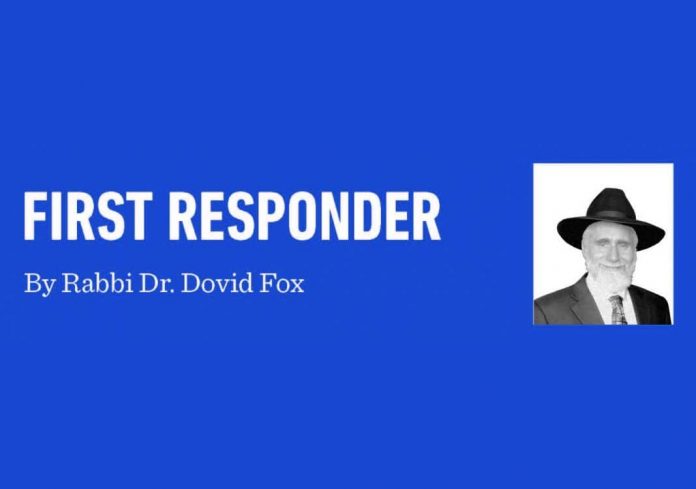One of the obligations the Haggadah requires of us is to view ourselves as if we had been freed from the Egyptian bondage. Maimonides (the Rambam) cites this as an obligation to display this behaviorally, giving others a sense that we were freed from bondage. Much of the Haggadah service emphasizes the Biblical accounts of how our ancestors were in fact slaves to Pharaoh. The Haggadah also describes the plagues that struck our Egyptian captors, the splitting of the sea, and the other miraculous events. There seems to be rather scant opportunity within the Seder service to focus on feeling as if we too were liberated.
My father-in-law, Rav Dovid Rebibo, a’h, who led the Jewish community in Phoenix, Arizona and its environs for over half a century, would enact the demonstration of being liberated, and demonstrating this to others. He was from Morocco and kept the view of Maimonides, who had also spent some of his youth in Morocco when fleeing Spain and before heading to Egypt. He would carry the heavy Seder plate, or keara, and circumnavigate the Seder table, passing the keara circularly above the heads of each seated person, chanting that “We left Egypt in a hurry and we are now free people.” This was an active and animated display of how we left exile loaded with whatever we carried on our shoulders and long ago chanted the declaration that we are now free.
My own father, Dr. George Fox, a’h, had a different custom. He had been drafted into the U.S. Army while in his late teens during WWII. He was stationed in North Africa, including Egypt. While there, he visited the pyramids. Whereas there is no evidence in our Torah or Rabbinic sources that the Jewish slaves built the pyramids, my father used that visual image to share with us what life was like in Egypt: the Nile, its beasts, the humidity, and the intense dark haze all helped bring to life for us what it was like to be slaves back then, and the relief our ancestors must have felt to escape that uncomfortable and oppressive land.
But there was also a second practice that my father introduced to us at his Sedarim. My parents had befriended a couple who survived Auschwitz. We shared some Sedarim with them because they considered our family like their own family. Their son Zalman had been murdered in the concentration camp and after the war they had another son. The three of them joined us for numerous Sedarim. Upon reaching the Haggadah passage that proclaims: “We were slaves in Egypt,” the couple rolled up their sleeves to show us their tattooed numbers that were burned into their flesh by their Nazi tormentors. The husband would reach under his chair and pull out what I assumed were frayed pajamas, and it was only years later when I realized that this had been his uniform in Auschwitz during his years of enslavement.
This was a vivid demonstration of how we were once slaves and can now declare that we are free to cast aside those rags of oppression and live like proud, free men.
But what about our own generation? Are we truly free? Can we relate to slavery these days? Do we have the ability to model or act out that sense of having been victims of sadistic bondage, and can we now demonstrate that we feel as if we are liberated? My answer is yes. This year and last, there are Jews who were taken captive by an oppressive enemy and enslaved. The horrors of October 7 have revealed to all that Jews can become captives to an enemy nation at a moment’s notice. Call them hostages or prisoners of war, or whatever you like. Those who were hostages and are now free are living examples of “we were slaves and we went out.” And let us not forget those who remain enslaved in Gaza as the world looks away in silent, passive approval. May our brothers and sisters merit a swift redemption from captivity and may we also merit the geulah shleimahso that we can make our way home to Eretz Yisrael, so that next year we can truly be free.
Rabbi Dr. Dovid Fox is a forensic and clinical psychologist, and director of Chai Lifeline Crisis Services. To contact Chai Lifeline’s 24-hour crisis helpline, call 855-3-CRISIS or email crisis@chailifeline.org. Learn more at www.chailifeline.org/crisis.












